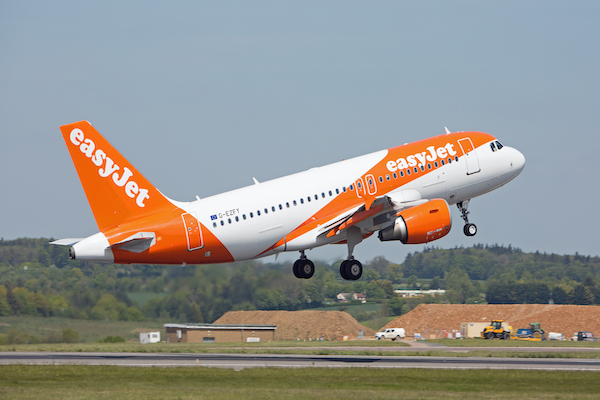EasyJet has successfully reduced its winter losses by more than £50 million, despite enduring rising fuel costs and ongoing geopolitical unrest in the Middle East.
The airline’s impressive performance in the first half of the fiscal year highlights strategic capacity growth and operational efficiency, with demand for summer bookings continuing to build.
Strategic Capacity Growth
EasyJet’s significant reduction in winter losses was primarily driven by strategic capacity growth where demand was strongest. This strategic move ensured that the airline could capitalise on high-demand routes, resulting in improved revenue streams and better overall performance.
By focusing on areas with the highest demand, EasyJet was able to maximise its resources efficiently. This targeted approach has not only helped in boosting winter revenue but has also set a robust path for upcoming seasons.
Operational Efficiency and Cost Management
Operational efficiency and cost management played a crucial role in trimming losses. The airline reported that ex-fuel unit costs remained flat year-on-year, showcasing their effective cost control measures. Productivity and utilisation benefits were major contributors to this stable cost environment.
This focus on efficiency allowed EasyJet to absorb rising fuel costs and other financial pressures without significantly impacting their bottom line. It highlights the company’s commitment to maintaining a lean operation while still meeting market demands.
Impact of External Factors
Despite the positive outcomes, EasyJet faced significant headwinds, including rising fuel costs and the conflict in the Middle East. These challenges had a direct financial impact of around £40 million in the first half of the financial year.
To mitigate these effects, EasyJet suspended flights to Israel for the summer, reallocating this limited capacity across its network. This proactive approach ensured minimal disruption to their overall operations and helped maintain revenue stability.
Growth of EasyJet Holidays
EasyJet Holidays emerged as a notable success, contributing £31 million in profit before tax, marking a 206% increase compared to the first half of the previous year. Year-on-year customer growth reached 42%, reflecting the strong market demand for holiday packages.
This segment’s performance underscores EasyJet’s diversified business model, which not only focuses on flight operations but also taps into the lucrative holiday market. The substantial growth in this area is expected to continue, driven by robust consumer demand.
Summer 2024 Outlook
Looking ahead, EasyJet reports strong booking trends for summer 2024, with increased volume and pricing compared to the same period last year. Summer bookings have already reached 70% of their sales plan, demonstrating consumer confidence and demand.
CEO Johan Lundgren noted the importance of travel for consumers and EasyJet’s trusted brand as key drivers for these positive booking trends, expecting EasyJet to be one of the fastest-growing major airlines in Europe this summer.
The introduction of new bases in Alicante and Birmingham is set to enhance EasyJet’s network further, providing more options for passengers and supporting the anticipated growth.
CEO’s Perspective
Johan Lundgren, Chief Executive of EasyJet, expressed confidence in the airline’s strong performance and future prospects. He highlighted the company’s ability to reduce winter losses by over £50 million as a significant achievement.
Lundgren attributed this success to EasyJet’s commitment to growth and operational excellence, emphasising their strategic focus on productivity and network expansion to meet rising consumer demands.
Market Response
The market has responded positively to EasyJet’s financial results and strategic initiatives. Investors and analysts appear optimistic about EasyJet’s ability to navigate through challenges and continue its growth trajectory.
Overall, EasyJet’s strategic initiatives and effective cost management have enabled the airline to significantly reduce winter losses by over £50 million.
Looking forward, strong demand and operational efficiency are expected to support further growth and profitability, positioning EasyJet as a leading player in the competitive European airline market.

